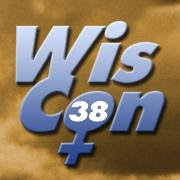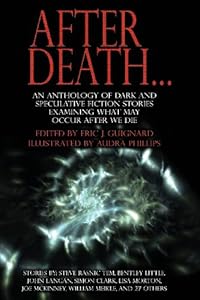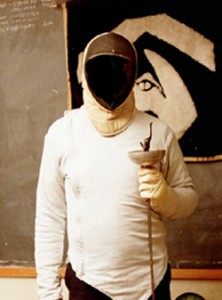I’ve spent the last several months reviewing award nominees. I decided to take it one step further and post the final decisions that I plan to post to my Hugo ballot with explanations (where I deem them necessary) about why I voted the way I did. I encourage anyone reading this to post discussion in the comments about how they voted, why I am wrong in my choices, etc.
What makes this more interesting is that the Hugo Awards use an instant runoff voting system. You rank your changes from 1-x, and can also set a number to the “No Award” category. You can find all the nitty gritty details at the Hugo Page explaining votes. I like the system a lot, much more than just a simple single-cast vote, because if your primary vote is for the least popular story, your other preferences still count for something.

 written by Shane Halbach
written by Shane Halbach The After Death anthology with my story “I Will Remain” is now available for sale. It’s anthology of stories that take place after death, one of my favorite topics to contemplate and write about.
The After Death anthology with my story “I Will Remain” is now available for sale. It’s anthology of stories that take place after death, one of my favorite topics to contemplate and write about. Nebula nominee, frequent Analog byliner, Writers of the Future first place award winner, 2 time Phobos Fiction Contest winner, 6 time Analog Readers Choice Award winner, Odyssey graduate, and longtime Critters member Carl Frederick is camera shy. As you can see from the photo, even his pet cat is shy. He likes cats and dogs and they are prominent characters in many of his stories. Frederick is known for his hard science stories. He’s had 40 plus short stories published in Analog. Lately, without letting up on the hard science stories, he has delved deep into character driven stories and even literary science fiction. Or rather, stories with strong character development well blended into the hard science element – and vice versa.
Nebula nominee, frequent Analog byliner, Writers of the Future first place award winner, 2 time Phobos Fiction Contest winner, 6 time Analog Readers Choice Award winner, Odyssey graduate, and longtime Critters member Carl Frederick is camera shy. As you can see from the photo, even his pet cat is shy. He likes cats and dogs and they are prominent characters in many of his stories. Frederick is known for his hard science stories. He’s had 40 plus short stories published in Analog. Lately, without letting up on the hard science stories, he has delved deep into character driven stories and even literary science fiction. Or rather, stories with strong character development well blended into the hard science element – and vice versa.